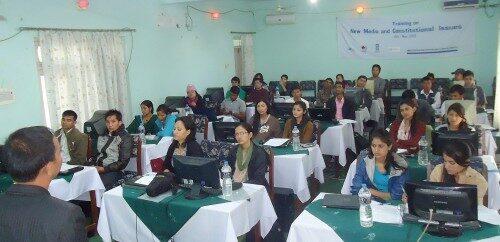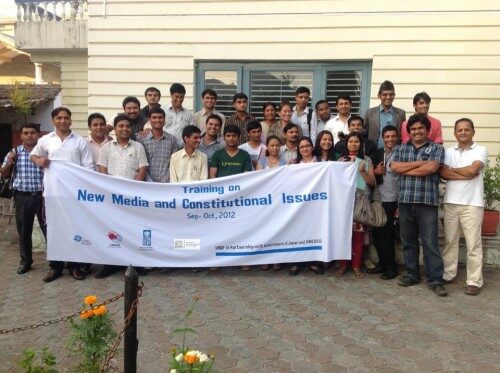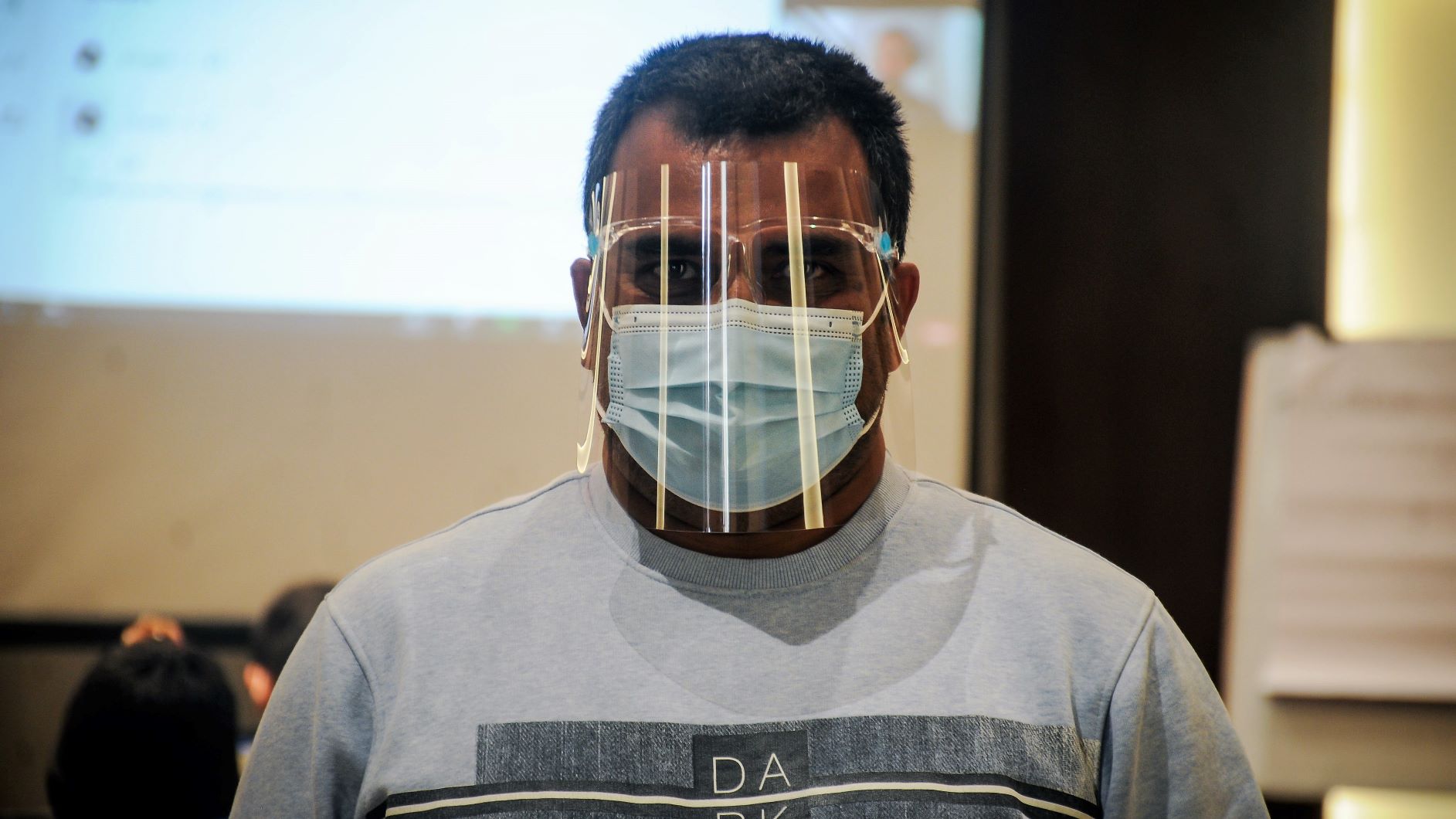
Dhangadhi Training.
In October and November 2012, I travelled five places to train journalists in use of social media. The training was organized by Equal Access Nepal and funded by UNDP in partnership with the Government of Japan and UNESCO.
The five training venues were: Biratnagar (east Nepal), Balthali, Kavre (central), Pokhara (west), Dhangadhi (far-west) and Nepalgunj (mid-west). Altogether more than 150 journalists attended the two-day residential training – at an average of 30 trainees per venue.
The training was officially titled ‘training of new media and constitutional issues’ and it included a couple of sessions from legal experts as well.
My sessions were basically a) overview of online journalism and social media b) social media usages for journalists c) web writing d) ethical issues on online/social media and e) practical session on use of Facebook and Twitter for journalistic purposes.
Binaya Guragain led a few sessions – especially on online publication and need of journalists to opine and network on social media and his colleagues were great help for practical sessions.
Here are some observations, mainly related to the use of social media by journalists, from those trainings.
Journalists still to explore
All participants have Facebook accounts and a quarter have Twitter account but they all are using it for personal purposes. They were using them for some of journalistic purposes but that number was very limited.
My impression is: journalists in Nepal are not alien to social media but they are using it very prematurely as a fun tool rather than something that could help them to enhance their profession.
Kathmandu journalists are ahead
While four among five trainings were basic level, the training for central region, which included many young journalists from Kathmandu, was a level high.
It was because most of the participants were well-versed with use of Facebook and Twitter, also some of them using it for their professional skills.
So they were very enthusiastic to learn more and advanced use of social media tools and I had to do extra effort to prepare materials for them outlining practical skills with examples.

Participants of Social Media for Journalists training in Pokhara, west Nepal.
Journalists want to learn
I’ve attended a few trainings, heard about many trainings and have observed a few trainings for journalists in past. And, as many other trainers, I got a feeling that many journalists are not interested in learning because many participants were hardly focusing on what’s going on.
I don’t claim that all the journalists were focused this time, and there were times when we the trainers expressed frustrated during evening-discussions but overall majority of journalists were enthusiastic to learn social media and online journalism.
A very interesting memory is that in Balthali, we did a session in evening before the formal start of the training and then many of the journalists stayed in the training hall for next two nights, until around mid-night, working out on computers.
Many of them expressed that the two-day residential training was not enough and many things remained to be learnt.
A beginning but continuation is key
That’s the conclusion and its true for both the organizers and participants.
For participants, many of them learnt something new – some new tools or new techniques to use the tools they were already using for professional skills. But for them to continuation of using them is a key.
For organizers (and donors), it was a good beginning because the trainings were first of its kind – the topic was new, the setting with individual computers with high-speed Internet connection to each participant is new.
Journalists too enjoyed and took it well but if they’re looking into increased use of social media by journalists for journalism and want to real results, the training should continue, and followed up with more.
Thank you note: Let me take this opportunity to express my thanks to – the participants (everyone of them were super exciting), EAN (specially Binaya Guragain who managed all my rescheduling enduring pressure from donors), EAN staffs (specially Ganesh Upadhyay, Karuna Paudel and Jeevan Sharma), good friends from UNDP (Renu Kshetri andA Dilla Pant).
I also immensely enjoyed meeting and talking with other trainers (my media law teacher during university years Kashi Raj Dahal, legal experts Mohan Acharya, Buddhi Karki, Basant Adhikari and Prof Krishna Khanal).

